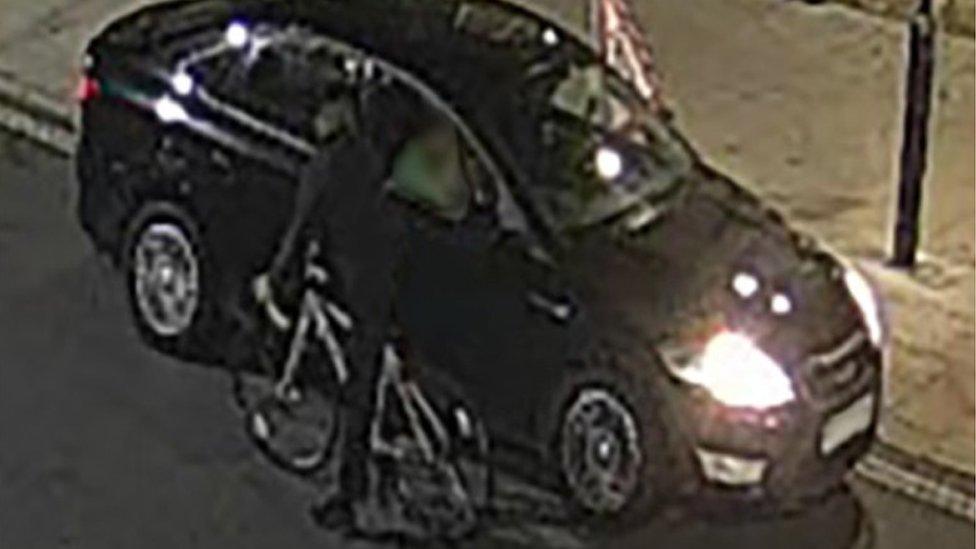The tortuous search for Corrie Mckeague
- Published
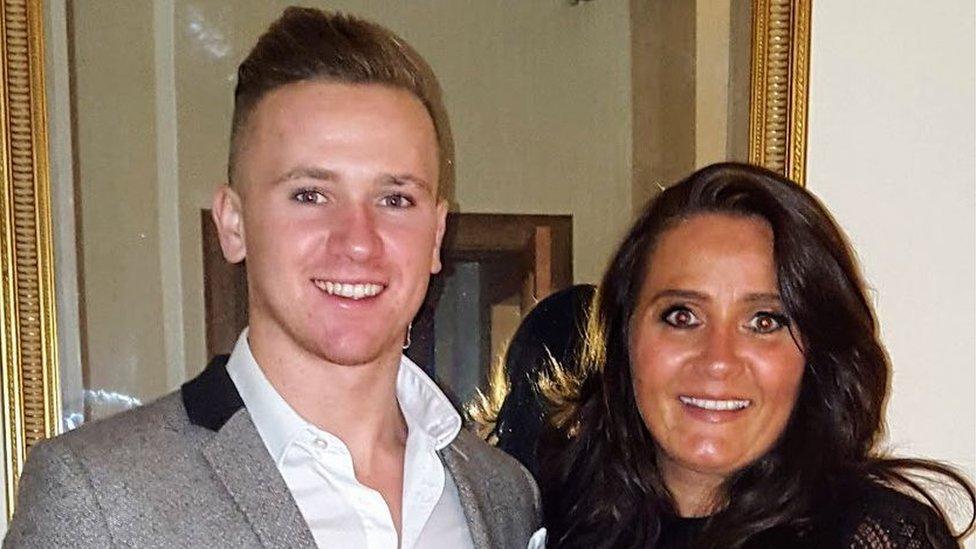
Corrie Mckeague's mother Nicola Urquhart said they had always been a close family
The search at a landfill site for the body of Corrie Mckeague, the young airman who went missing after a night out, has been called off. For months, his disappearance set social media aflame with appeals and conspiracy theories alike. This is the story of his mother's search for the truth.
On the afternoon of 26 September 2016, Nicola Urquhart's phone rang. It was the police telling her that her 23-year-old middle son, Corrie, an airman at RAF Honington in Suffolk, had been reported missing.
Mrs Urquhart, hundreds of miles away at the family home in Dunfermline, was told he had not turned up to parade that morning.
Information about his last known movements was quickly coming to light - he had been on a night out in Bury St Edmunds, and had been seen walking into a bin loading bay area known as "the Horseshoe" before disappearing from the view of CCTV cameras.
"In the first five days, I had complete confidence in the police team," recalls Mrs Urquhart. "The phone calls I was getting, the updates I was getting - we didn't even come down to Suffolk. I stayed at home.
"They'd searched the Horseshoe area and there was no trace of him there. In my mind, it was a case of follow him on the camera and we're going to find him.
"I had complete faith that was what was going to happen."
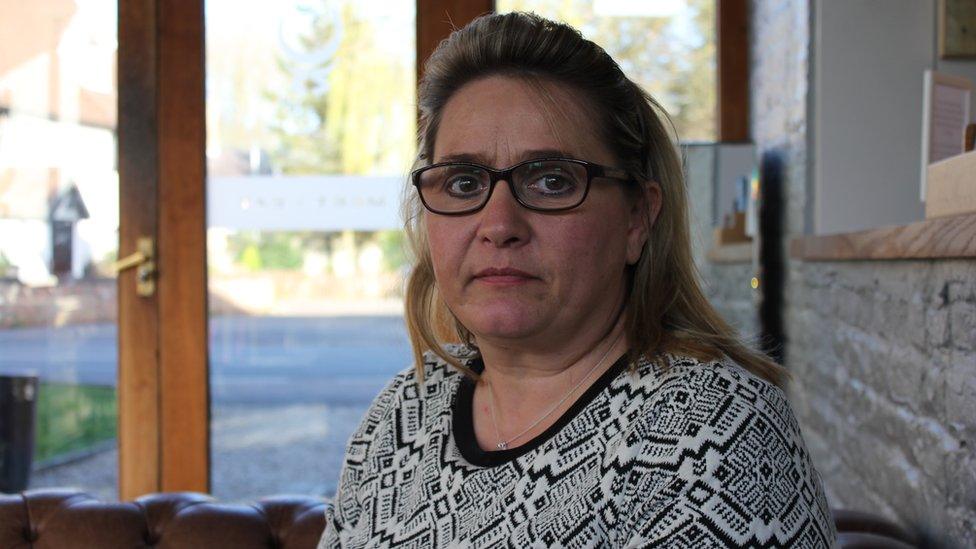
Mrs Urquhart said Facebook had been a constant source of information and support
While Corrie's fate is unknown, police believe his remains are probably in the landfill site. If that is the case, his last night alive certainly seems to have been a boisterous one.
He had been out with friends before becoming separated from them when he was thrown out of a club for drinking too much.
Corrie moved on to his favourite takeaway Pizza Mama Mia, where he bantered with the staff, before sleeping for a couple of hours in the doorway of Hughes Electrical.
He then made his final, solitary journey through the streets of the quiet Suffolk town and entered the Horseshoe.
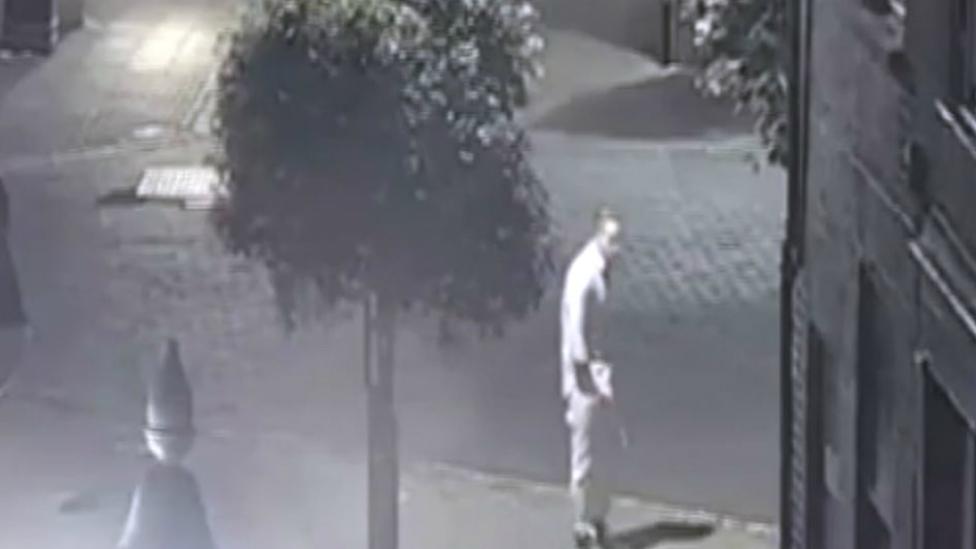
He was spotted walking into a bin loading area at 03:25 BST on 24 September - that was the last sighting of him
Somehow, he ended up in a large bin, filled with bags of household waste, and was most likely crushed to death a short time later in the hopper of a bin lorry.
Police have now revealed that Corrie had been known to "sleep in rubbish" during nights out.
Investigations showed that his mobile phone followed the same route as the lorry, which had headed to Milton, Cambridgeshire, 30 miles away.
At that time, detectives had been told the weight of a bin-load collected from the site was 11kg (1st 10lb) - far too light to contain Corrie's body. As a result, the landfill site was not searched at this point in the inquiry.
But in March, almost six months after the airman's disappearance, it was revealed by police that the bin's weight was in fact over 100kg (15st 10lb) - more than heavy enough to have contained the missing airman.
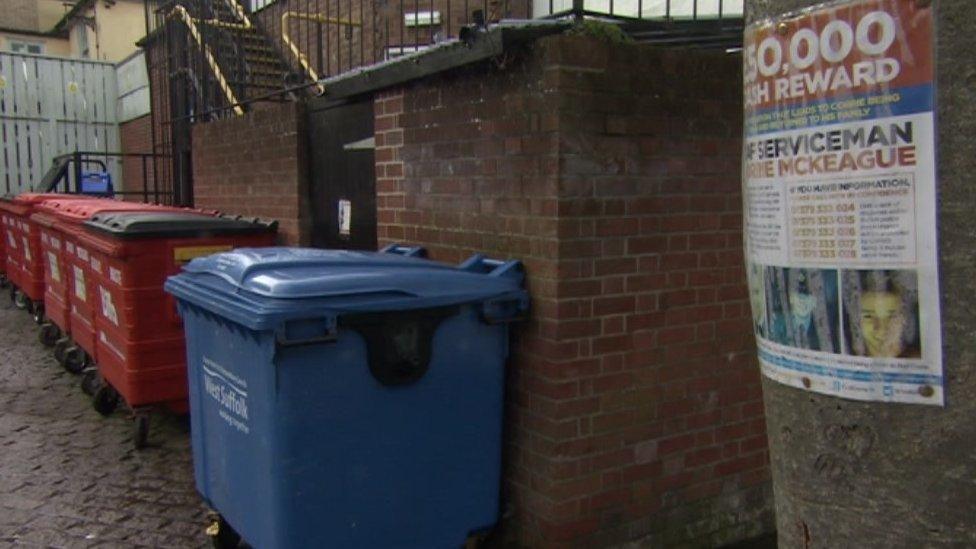
What happened after Corrie entered the bin loading area?
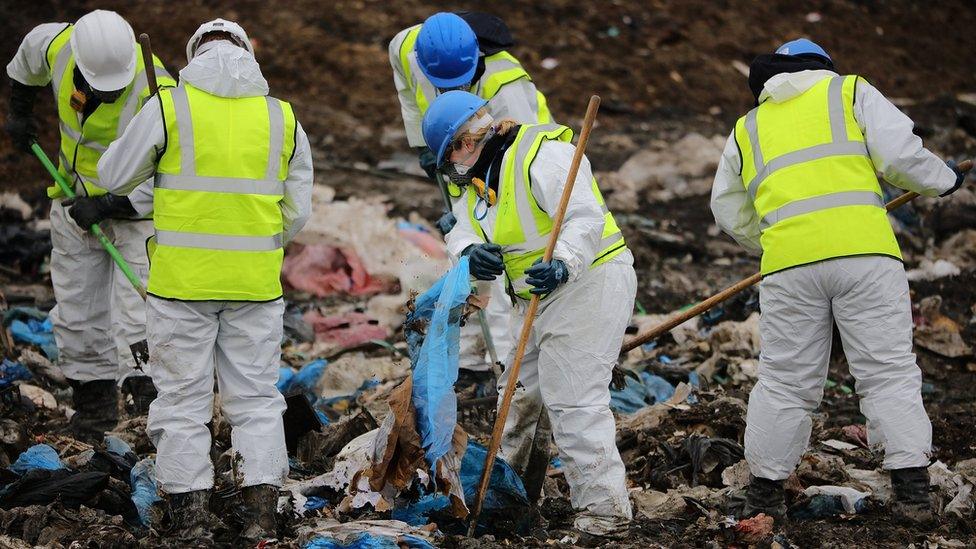
The scent of bubblegum was pumped out to try to mask the stench for those whose job it was to trawl through the site
Since realising the body was most probably at the 120-acre (48.5 hectare) landfill site in Milton, a team of eight officers have been trawling through the waste, examining 60 tonnes of rubbish each day.
Mrs Urquhart and her two sons Darroch and Makeyan travelled from Scotland and set up base nearby, living a "daily torture" as they waited for police to call to say they had found Corrie.
The family is very close - Corrie would often spend hours on the phone with his mum or siblings.
The middle brother of three, he was born in Perth and raised 25 miles up the road in Cupar, Fife.
Their parents split up when Corrie was nine and the boys moved 28 miles (45km) to Dunfermline with Mrs Urquhart.
Makeyan said they were just "normal brothers" who would play, fight, torment each other "the way brothers do", while Darroch described Corrie as the "most outgoing person", who loved attention and being around people.
A couple of months after he went missing, Mrs Urquhart posted a video of him sitting in the back garden singing "I Want to be Popular" from the musical Wicked.
"That just sums that boy up completely," she said.
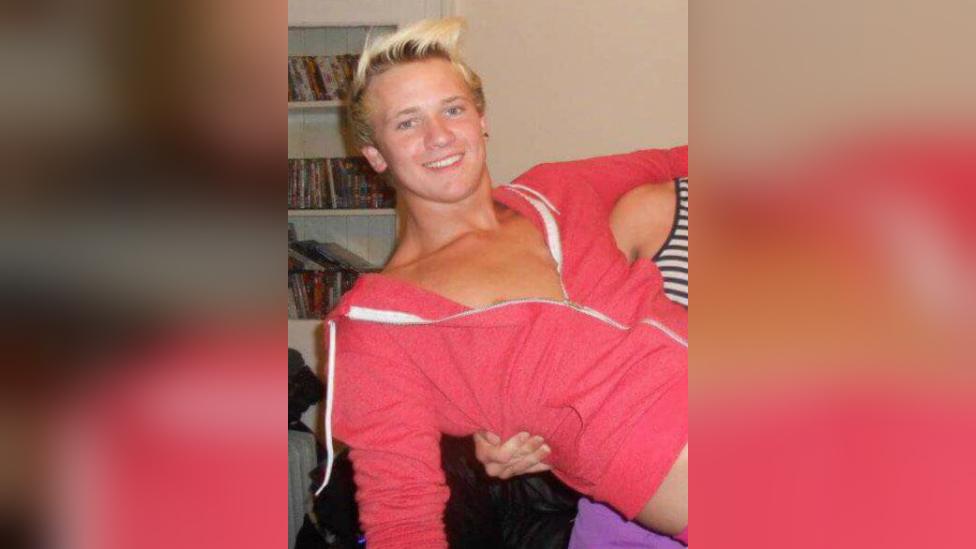
Corrie was known for his sense of fun and was very close to his family
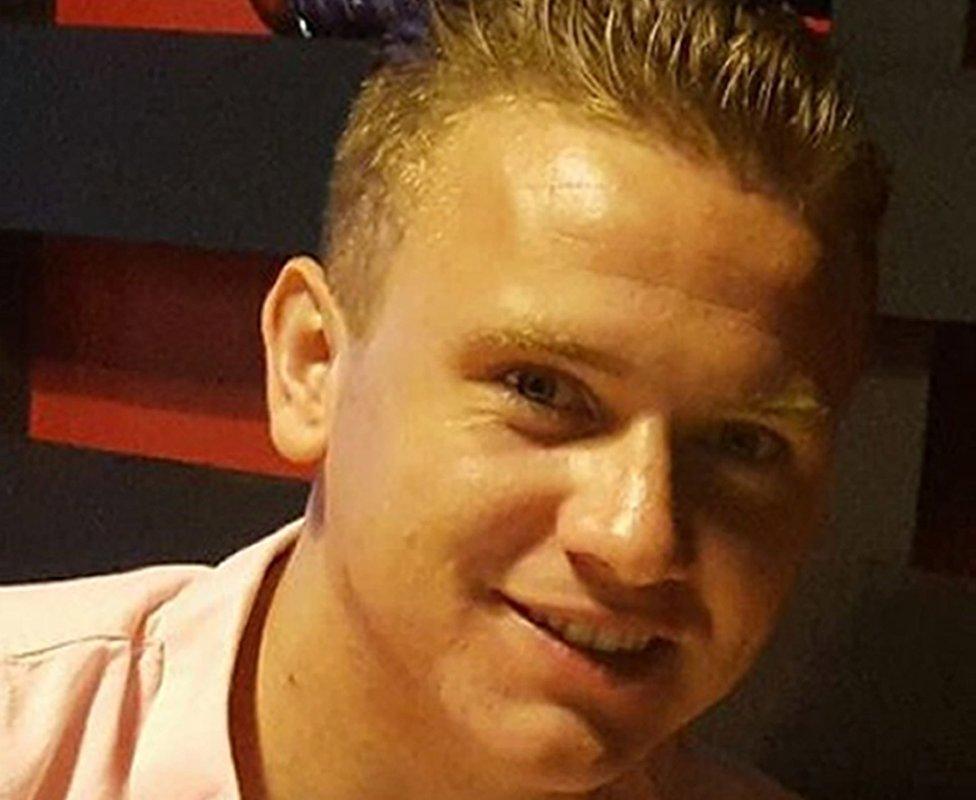
Corrie "always wanted to be popular", said his mother
Corrie's zest-for-life personality was evident to anyone who came into contact with him.
The day before he went missing, the RAF band was playing at the Honington base and video footage captured Corrie "conducting".
"I remember going up to him and his friends and they were just about to go out for a night out and I said to him 'you know you're wasted in the Royal Air Force, you actually need to go on stage'," his station commander Gp Capt Mick Smeath said.
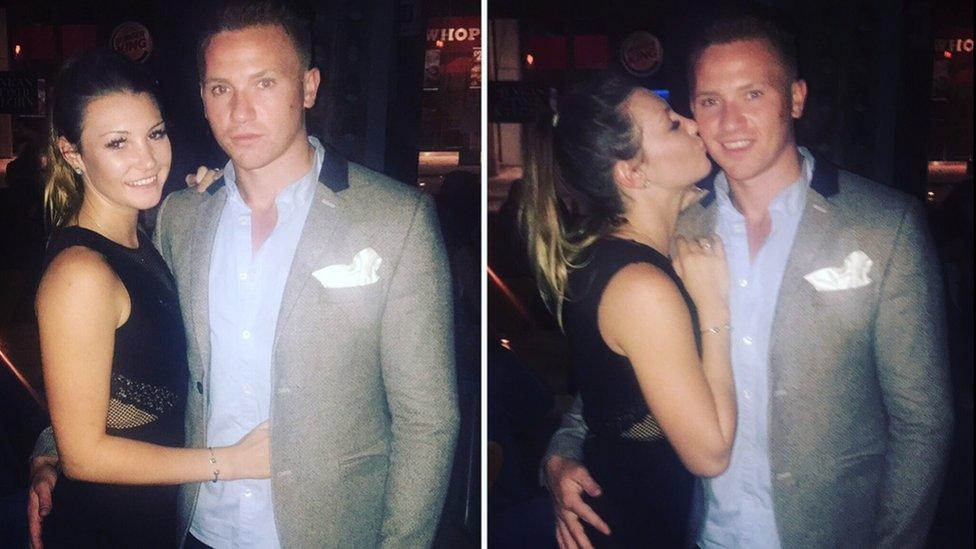
Corrie's girlfriend, April Oliver, gave birth to his baby last month
As the weeks passed following his disappearance, pictures of the airman were splashed across newspapers - along with some of the more sordid details of his private life.
Tabloids lapped up news he was on a "swingers" website and told stories of women who had "romped" with him.
But what very few people knew was that Corrie had had a girlfriend who was pregnant with his child.
April Oliver, 21, who has since given birth to a baby girl, remembers him buying her roses on their first date.
"He was the sweetest, most outgoing person I've ever known," she says. "He would literally do anything for you, I've never known anyone to be like him."

Corrie Mckeague: A social media phenomenon
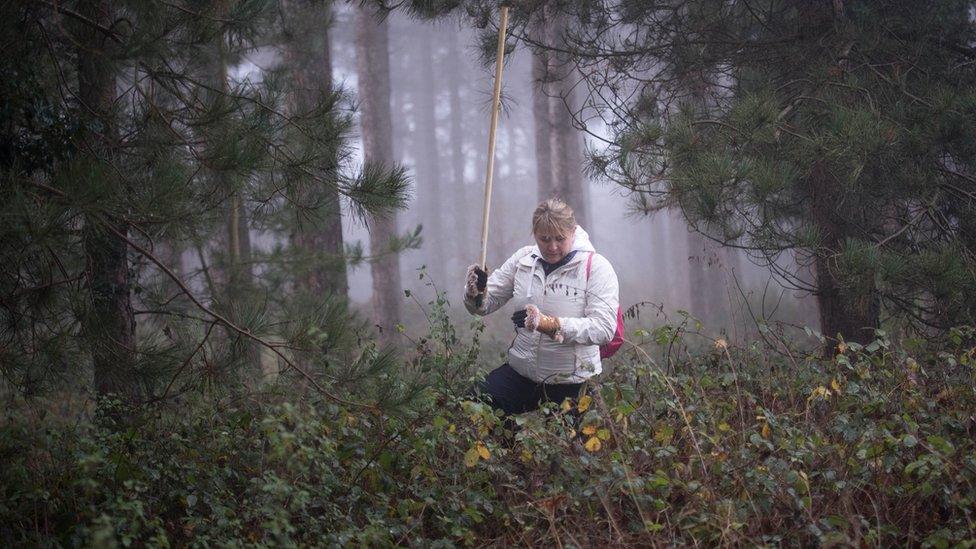
Mrs Urquhart joined in the searches herself, knowing she may find the body of her son
Each year, an estimated 250,000 people go missing. But very few of them generate such long-lasting and widespread interest as Corrie Mckeague - and social media has played a huge part in that.
Perhaps the best example of this is a picture of Mrs Urquhart searching woodland for any trace of her son, which formed part of a Facebook post shared 270,000 times.
A "Find Corrie" Facebook page attracted thousands of followers who posted information, theories and messages of support.
But why did Corrie's story make such a big impression?
Intelligence expert Forbes McKenzie said it was down to Corrie being an airman and the British public are "good at getting behind the forces".
Mr McKenzie described the social media buzz around Corrie's disappearance as "a phenomenon".
"The Facebook page was like a fan page. It was a source of conversation, a source of information. A place for people to go."

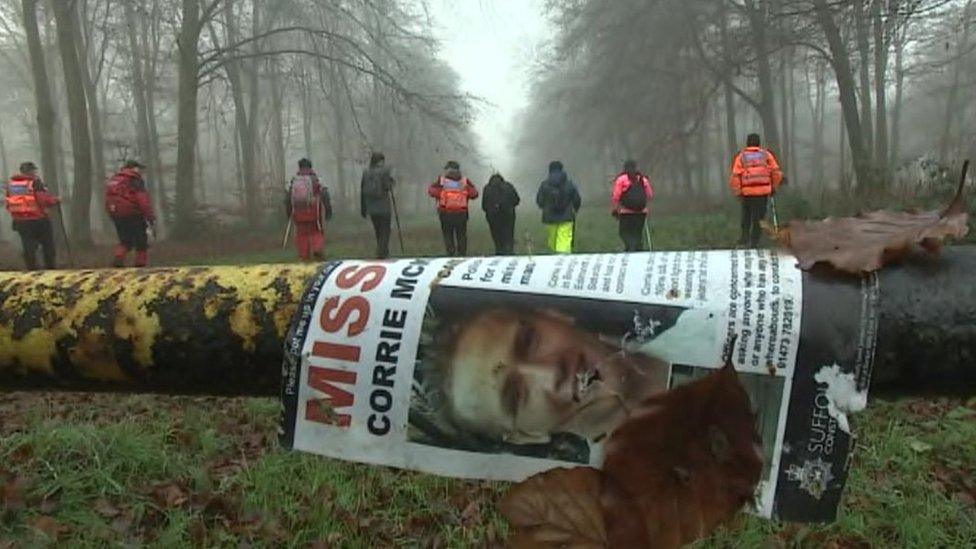
The discovery of Corrie's body is something his loved ones have been expecting for months, ever since the bin lorry weight mistake was revealed.
Now that the search has been called off, his family face the reality that the truth of what happened to him might never be fully understood.
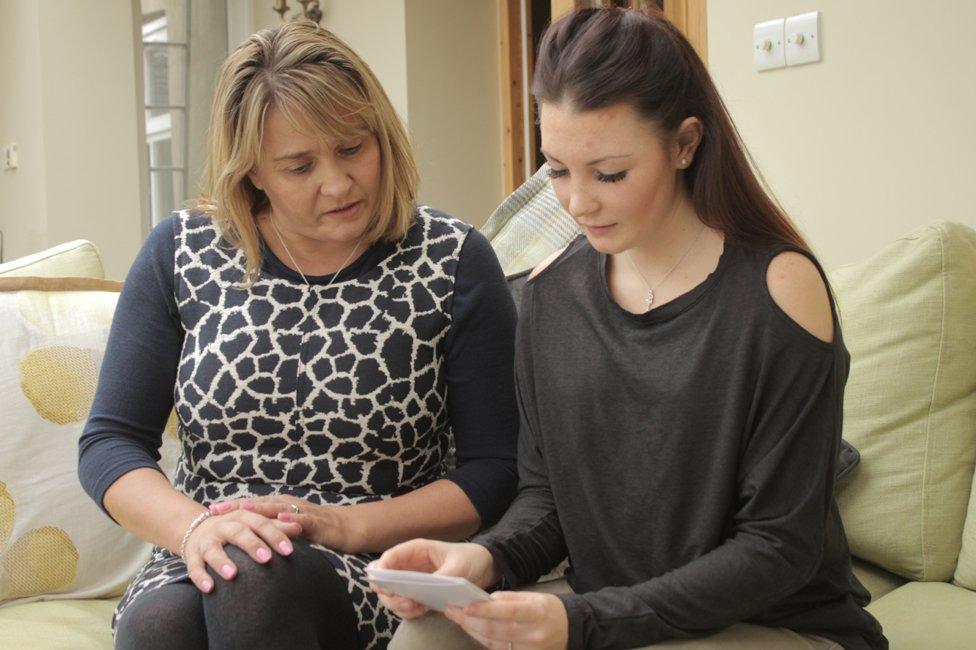
Corrie's girlfriend April Oliver says she found out she was pregnant in October after Corrie disappeared
Writing on the Find Corrie Facebook page, Mrs Urquhart said she had tried to wait "quietly, patiently and remain positive" during the long search.
Now, she faces a future in which she might never find out what happened to her son.
"I understand that Corrie may never be found. I am realistic and we will find a way to deal with that scenario, but it would have to be knowing that a sound investigation had been carried out and there are no other lines of inquiry that could be followed.
"We are still a long way off that."
- Published9 March 2017
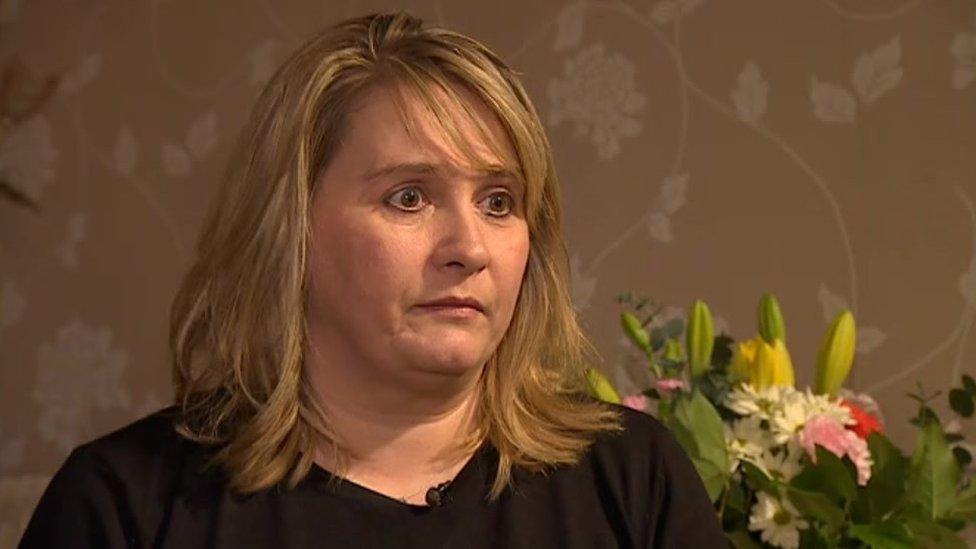
- Published28 December 2016
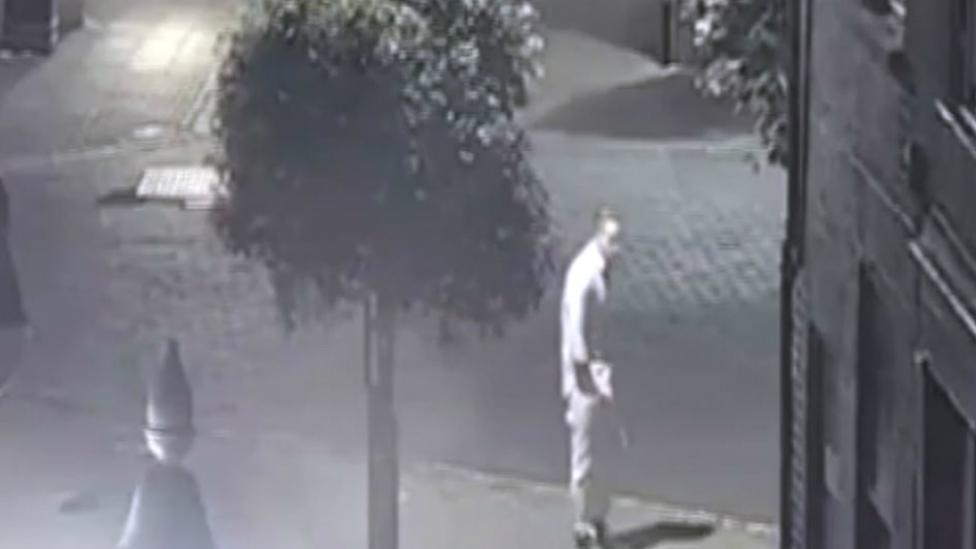
- Published24 March 2017
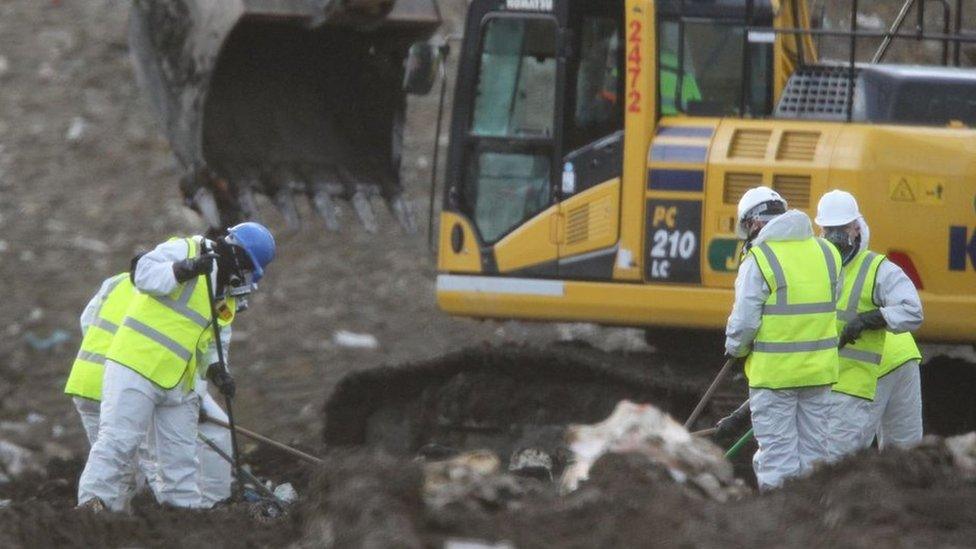
- Published17 February 2017
